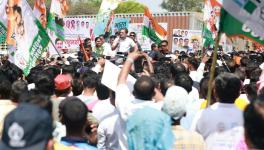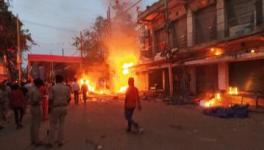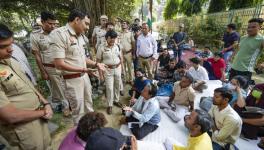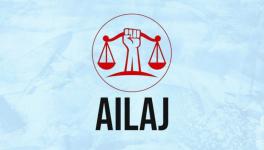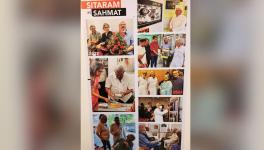Dalits, Adivasis and Muslims Among Most Excluded From Public Goods: Report
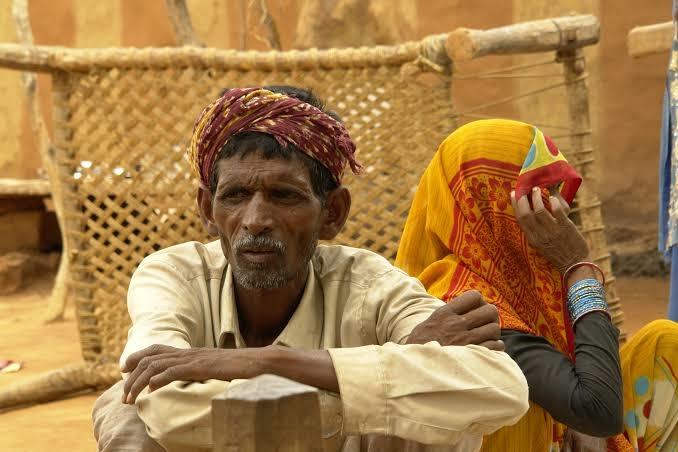
Image Used for Representational Purpose Only
The Centre for Equity Studies on Tuesday released its fifth annual report, titled India Exclusion Report (IXR), examining the widespread forms of exclusion, injustice and exploitation still prevalent in the Indian society.
Released on the 70th anniversary of the Indian Constitution, the report studies the role of the state and non-state actors in facilitating exclusion of several sections of the society and denying them access to the public goods, something that must be “measured from the stand point of the values enshrined in the Constitution,” as said by the think tank director Harsh Mander while releasing the report.
Identity-based victimisation of Assam’s Char community which constitutes Muslims and Bengali in majority, universal impunity to the aggressors of communal violence who belong to Hindu majority, and SCs, STs, and OBCs still being the most excluded when it comes to employment—these, among others, were the highlights of the report.
The Chars in Assam: ‘Victims of Environmental Distress, Subjected to NRC Too’
‘Outsiders’, ‘illegal immigrants’, ‘illegal Bangladeshi’ are only some of the tags that the Assam’s Char community—with an estimated population of 25 lakh—were subjected to by the popular discourse in the aftermath of the National Register of Citizens (NRC) process, noted the IXR.
According to the report, the Chars face discrimination and exclusion because of their religious and linguistic identities, and are subjected to violence.
Abdul Kalam Azad, the author of the chapter, notes that the population continues to survive without any fundamental rights with access to health, education and livelihood remained as a challenge.
Speaking of the role of the ruling BJP government in the state in furthering their difficulties, the report said that after coming to power in 2016, the BJP government failed to rehabilitate the community who were among the worst affected by the 2016 Assam floods.
Dalits, Adivasis and Muslims Among Most Excluded From Public Goods
On the exclusion of the social groups being deprived of the public goods and services, the IXR found that the dalits, adivasis, Muslims, women, and persons with disabilities are the are prime targets.
To speak of the numbers, the report notes that around 44% of children belonging to ST communities are stunned while it is no different for the SC community where the figure stands at 43%.
On the jobs front, according to the report, members of India’s disadvantaged communities continue to face structural bias as far as access to jobs is concerned and enjoy lower earnings than their upper-caste counterparts.
“This disadvantage extends shockingly even into public employment despite reservation polices,” said the report, adding that in the public sector “reserved seats, especially in senior positions, are often not filled up.”
The authors analysed the National Sample Survey Organisation (NSSO) data records that the Muslims are the lowest represented in salaried-class employment and women were the largest declining labour force in the country.
In addition to this, further studies published in the report underscores the significance of public transport to socially include marginal sections of the society. In this regard, the author also criticises the structures of an Indian city where distance to bus stops has increased for 72% of the households and the bus frequency has decreased giving rise to the exclusion of the low income groups.
What’s more, the policies of the Modi—led BJP government have proliferated inequality, example being the goods and services tax (GST) which proved detrimental for small enterprises.
“Being an indirect tax, GST is already regressive but the design of GST which forcibly formalises the informal sector promotes inequality,” according to the author Malini Chakravarty.
Incidentally, the report on exclusion of vulnerable groups was released on the anniversary of the Indian Constitution. Prime Minister Narendra Modi in his address to the Parliament stressed upon the duties and responsibilities of the citizens.
While the prime minister noted that the Constitution beings with “we the people of India”, adding that the people are its strength and inspiration, it is the Indian state, as outlined by the IXR, which has failed in fulfilling its duties and upholding the constitutional values.
Get the latest reports & analysis with people's perspective on Protests, movements & deep analytical videos, discussions of the current affairs in your Telegram app. Subscribe to NewsClick's Telegram channel & get Real-Time updates on stories, as they get published on our website.












